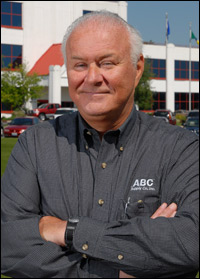A Quote by Jonathon Keats
There were other auto manufacturers that were confabulating as much as [Buckminster Fuller] was, making claims about how cars resembled this or that aspect of nature.
Related Quotes
Writing a book about [Buckminster Fuller] in the sense of deciding how much to - how much biographically to gloss over and how much I can leave out is relatively easy as it is because the true believers already know everything. They know a lot of things that are not true and they know a lot of things that I thought were (and seems there's very good evidence not to believe) and therefore, my starting point was I think to tell his myth because that's what grabbed me.
[Buckminster Fuller] started talking about it far enough afterwards, an audience that was far enough from when they - when the air flow and the Zephyr and these cars in the time period that were made by mainstream automakers. It was far enough in the future, far enough after that point that nobody really bothered to fact-check.
Once you start backing into all of that, then you see this incredibly intricate, totally wrong-headed way to do things, but nevertheless has a lot of merit to it for the fact that [Buckminster Fuller] is recognizing much larger patterns, seeking much larger patterns and seeking much larger ways of trying to solve for the problem of unhygienic conditions in slums. They really were unhygienic. Whether his family was living in the slum is debatable but they were unhygienic. That needed to be addressed. He was attempting to address it.
If you were charged with fixing the U.S. auto industry, how would you do it?
The guys who run the auto companies are out of touch with their customers and their employees. They ride to work in their limousines. They go up in their elevators and lock themselves in their offices. They don't walk out into the plants. They wouldn't even drive in the neighborhoods where their employees live. They give themselves big bonuses when the company isn't making any money. I'd make them get involved with the people who are building the cars. They've got to become real people.
I think that surprisingly few people right now know much about [Buckminster] Fuller beyond the few really iconic points. He invented the geodesic dome and he coined the term "spaceship earth" and that's pretty much the extent of what people who even have heard of him know. And I'm struck by how many people have not heard of him at all.
I was a young feminist in the '70s. Feminism saved my life. It gave me a life. But I saw how so much of what people were saying was not matching up with what they were doing. For example, we were talking about sister solidarity, and women were putting each other down. We were talking about standing up for our rights, and women weren't leaving abusive relationships with men. There were just so many disconnects.
On the other hand, the way in which that car fit into this whole very roundabout way of attempting to solve the problem of what - the problem that [Buckminster Fuller] perceived as being the cause of his daughter's death and meningitis. I mean how you get from your daughter dying from meningitis to making a car with three wheels and saying that it's like a bird and a fish. That really is amazing.
Early evening traffic was beginning to clog the avenue with cars. The sun slanted down behind him. Harry glanced at the drivers of the cars. They seemed unhappy. The world was unhappy. People were in the dark. People were terrified and disappointed. People were caught in traps. People were defensive and frantic. They felt as if their lives were being wasted. And they were right.
























